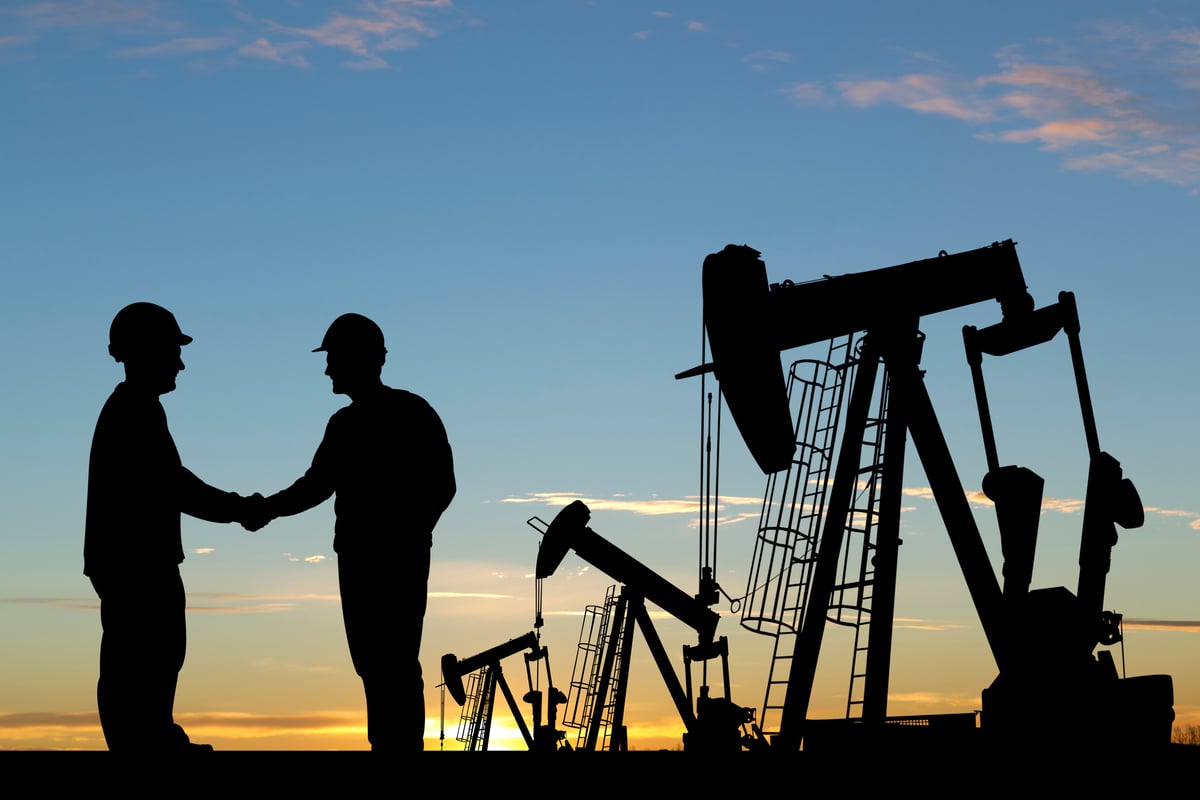Crude oil shipments by railroad have grown by a staggering 28,000% over the past five years. That growth has been a great profit driver for railway companies, and Warren Buffett's Berkshire Hathaway (NYSE: BRK-B) (NYSE: BRK-A) which controls Burlington Northern. Those profits, however, could be at risk in light of the tragic railway disaster in Canada which involved crude oil being shipped by train.

A Canadian Pacific train taking oil (Source: Flickr/roy.luck)
The Lac Megantic disaster, which has caused the deaths of at least two dozen, could be the event that brings railway shipments of crude to a screeching halt. It's an event that has many other towns, both smaller and larger, wondering if it could happen there, too. That's a big risk to Buffett because it could shut down shipments of oil at Burlington Northern which are estimated to double to about a million barrels of oil by the end of next year.
Comparing safety records
Overall, more than 99% of crude oil that was shipped over the past decade by either pipeline or rail was done so without incident. Last year, pipelines carried 472.6 billion gallons of crude oil and petroleum products with just 2.3 million gallons having been spilled. That's a rate of just 0.0005%, which is only high when you consider the fact that absolute perfection is the goal. Meanwhile, oil shipments by rail over the decade ending last year totaled 11.2 billion gallons with just 95,256 gallons spilled, with over 80,000 of those gallons being spilled in one disaster in 2008. That's an even better safety record; the incident rate works out to a minuscule 0.0000085%.
The fact remains that we've seen an increase in incidents by rail this year. This past March, a Canadian Pacific (CP +2.01%) train hauling crude oil derailed and spilled about 30,000 gallons of crude oil in Minnesota. That was the first major spill since the crude-by-rail boom started taking off just three years ago. Now, just a few months later, a worse disaster has cast a real dark cloud over the industry.
The real risk
Neither option is inherently risky in and of itself. However, the perception is that crude oil being shipped by rail is a much riskier proposition, especially in light of the tragedy in Quebec. That could turn up the heat on politicians to finally make a decision on TransCanada's (TRP +0.55%) Keystone XL pipeline. Without that pipeline, it's estimated that crude oil shipments by rail will increase by 42% by 2017, which only opens the door to increased risks for another railway disaster.

Oil pumping station in Nebraska (Source: Flickr/shannonpatrick17)
An additional risk to a large disaster is that the many small incidents that would be reduced if those volumes were instead directed to the Keystone XL. For example, the director of the North Dakota Department of Mineral Resources has stated that the Bakken oil that would move through the pipeline would save lives in the state. By reducing the truck and rail traffic, it's estimated that up to six lives would be saved each year in addition to seeing 150 fewer traffic injuries. That might not sound like a lot, but saving any life from tragedy would seem to be a very worthwhile cause.
Final Foolish thoughts
While it's unfortunate, tragedies like the one experienced by Canadians last weekend can cause people to think differently on a subject. In this case, it's starting to make some people think that maybe shipping crude oil by rail isn't the best long-term solution. That's a risk to Buffett's rail operations, which are currently enjoying the massive run-up in oil shipped along its lines.









